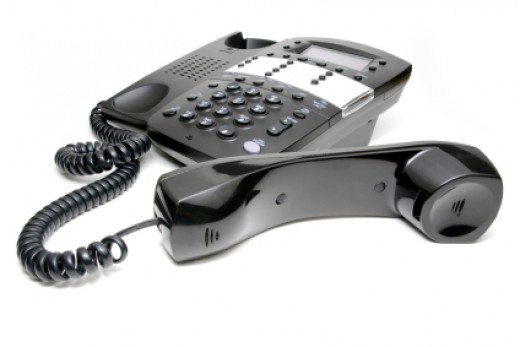
Twenty years ago, virtually every household had a home phone. Family members would constantly struggle for phone access with teenagers being on the phone most frequently. Today, many households do not own a home phone. Those that do may simply have a home phone for the purpose of an internet connection. Why has the landline virtually disappeared from the map?
Cell Phone Takeover
With the invention of cellular phones, people were able to take their conversations on the go. As technology advanced, calling rates became much cheaper, cellular provider plans had more to offer, and smart devices hit the scene. Now, smartphone owners have a phone and computer in a convenient, pocket sized device. With the popularity of “unlimited” plans, many families ditched their home phone service in favor of their cell phones.
Cheap VoIP Alternatives
VoIP calling, or voice over internet protocol, allows internet subscribers to make and receive calls through an internet connection. The cheapest VoIP service only costs a fraction of what a typical landline service provider would. VoIP could be used with a standard home phone device, making it an easy switch for those who already used landline services.
Budgeted Utility Bills
As recent slips in the economy occurred, more families became budget conscious. In an effort to reduce unnecessary expenses, many dumped monthly utilities that they simply did not need. Home phone services were cancelled in favor of mobile phones, while cable and satellite television subscriptions got cut in favor of internet streaming services such as Netflix. These cuts alone might have saved a family over $150 per month; a hefty amount of cash that could be saved for something more important.
Limited Mobility
Once mobile phones hit the scene, many expected that the landline would become obsolete. One of the biggest cons to a landline is that the phone is not mobile. It can only be taken so far from the base before it loses signal. As mobility became a necessity rather than a luxury, the landlines began to go quiet.
Increasing Preference for Instant Messaging
More individuals prefer to send and receive text messages than to talk on a phone. Messaging allows someone to continue performing whatever task they may have at hand, while carrying on with a conversation at their leisure. Typically, it is hard to complete tasks while actively conversing on the phone. It is also rude in many social situations.
As expected, the landline has become nearly obsolete. Businesses seem to be one of the few entities that still subscribe to landline services. Most families avoid landlines, as they use their mobile phones for nearly all communications.












